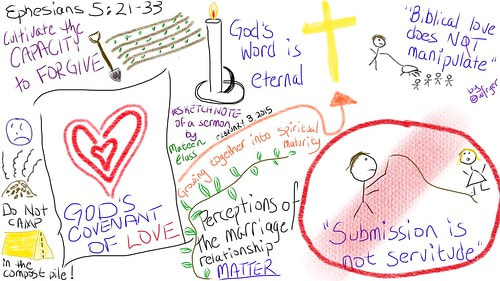Leadership is not simply anymore because today’s problems are complex and interconnected. No one person can know what to do. To understand issues, all parts of a system must participate and contribute. Leadership must expand from isolated, role-based actions of individuals to innovative, contextual interactions that occur across an entire social system. David faced a complex leadership problem when he tried to unite the 10 tribes of Israel with the two tribes of Judah. When Absalom, David’s son and rebel ruler of Israel, was killed and the nation defeated, a system of complex relationships between Israel and Judah began. Observing components of Godly leadership in 2 Sam. 18-19 will help us navigate in the complex systems we face today.
David numbered the people, set commanders of thousands and hundreds with one third under Joab, Abishai and Ittai the Gittite, respectively. With David staying back, he told the three commanders to deal gently with Absalom (2 Sam. 18:1-5). Godly leaders organize the right quantity and command structure for warriors in spiritual battle.
The servants of David defeated and killed 20,000 Israelites in Ephraim when the battle spread over the whole countryside. The forest devoured more people than the sword. Joab thrust three spears in Absalom’s heart after finding him hanging in the air when his hair was caught in over-hanging branches. People cast Absalom in a deep pit and all Israel fled to their tents (2 Sam. 18:6-18). Godly leaders deploy spiritual warriors on many battle fronts until they defeat the enemy.
Ahimaaz and Cushite ran to tell the news to David. He wept when he learned of Absalom’s death and said, “Would I had died instead of you, Absalom” (2 Sam. 18:19-33). Godly leaders allow passions and emotions to get out of balance occasionally.
Joab said David’s excessive grief over Absalom’s death showed ungratefulness by loving those who hated him and hating those who loved him even though his servants saved David and his family’s lives. Joab exhorted David go out and speak kindly to his servants, which he did. Israel quarreled about bringing David back as king. They reflected how he saved them from the Philistines, but fled from Absalom (2 Sam. 19:1-10). Godly leaders heed correction from others to enhance their effectiveness.
David asked his close brothers, Zadok and Abiathar the priests, why they were the last to bring him back as king. David turned the hearts of Judah as one man in supporting his return as king (2 Sam. 19:11-15). Godly leaders unify others to work toward a single goal.
Shimei who had cursed David earlier admitted his sin and wanted to be first of the house of Joseph to meet him. David did not allow Zeruiah to kill Shimei (2 Sam. 19:16-23). Godly leaders discern their followers’ mixed motives for serving.
When David asked Mephibosheth why he didn’t go with the king, he said his servant deceived and slandered David by not preparing a donkey for him to leave. Mephibosheth expressed his gratefulness about eating at David’s table. He said Mephibosheth would divide the land with Ziba (2 Sam. 19:24-30). Godly leaders care and serve the less fortunate.
David blessed Barzillai, an old man who sustained the king while he stayed at Mahanaim. He requested that Chimham cross over with David who agreed to do good for him. All the people and David crossed over the Jordan (2 Sam. 19:31-39).
Godly leaders develop close friendships and are approachable.
After David, Judah and half of Israel crossed over the Jordan, Israel asked why Judah stole him away and treated them with contempt when David, his family and men were brought over the Jordan. Israel argued that with ten parts in the king (ten tribes) and being the first to suggest bringing back the king, they had more claim than Judah. Judah’s words were harsher than Israel’s (2 Sam. 19:40-43). Godly leaders face division and quarrels as they seek to fulfill their kingdom purpose.
Which of the following components of Godly leadership are most important for you to apply right now?
1. Organize the right quantity and command structure for warriors in spiritual battle
2. Deploy spiritual warriors on many battle fronts until they defeat the enemy
3. Allow passions and emotions to get out of balance occasionally
4. Heed correction from others to enhance their effectiveness
5. Unify others to work toward a single goal
6. Discern their followers’ mixed motives for serving
7. Care and serve the less fortunate
8. Develop close friendships and are approachable
9. Face division and quarrels as they seek to fulfill their kingdom purpose







